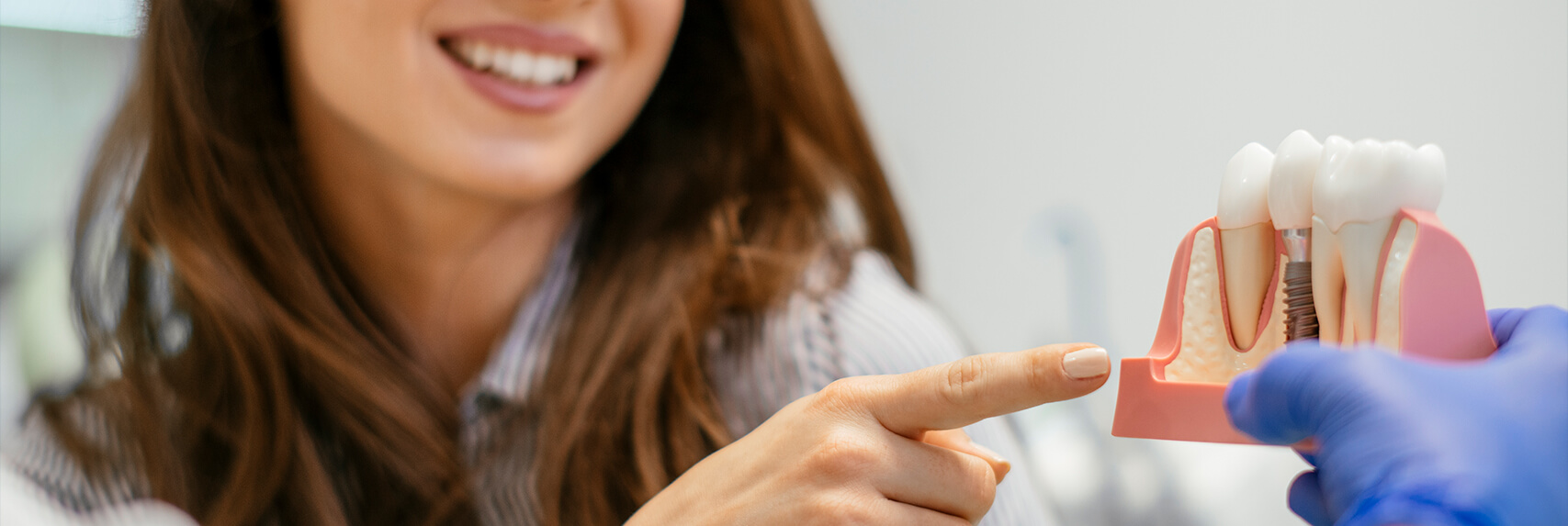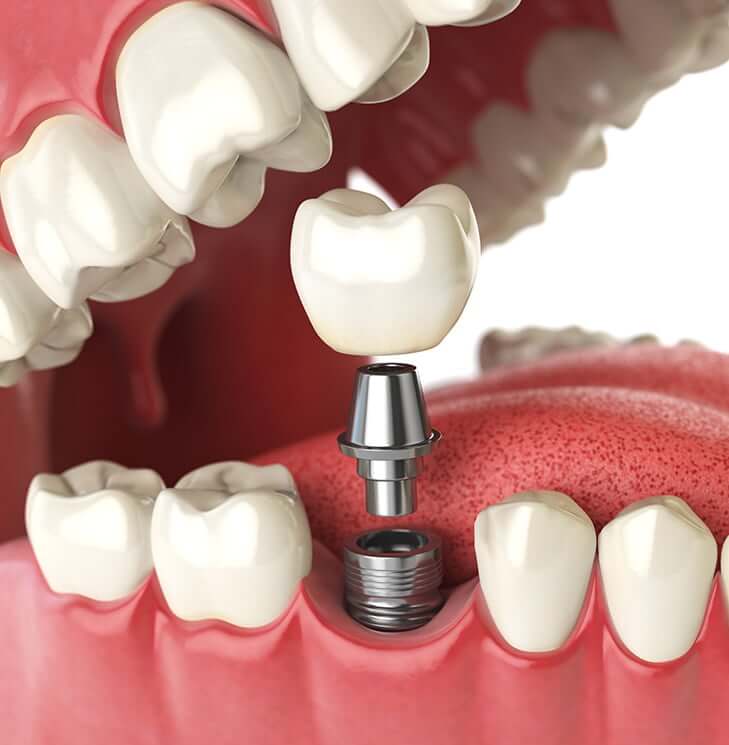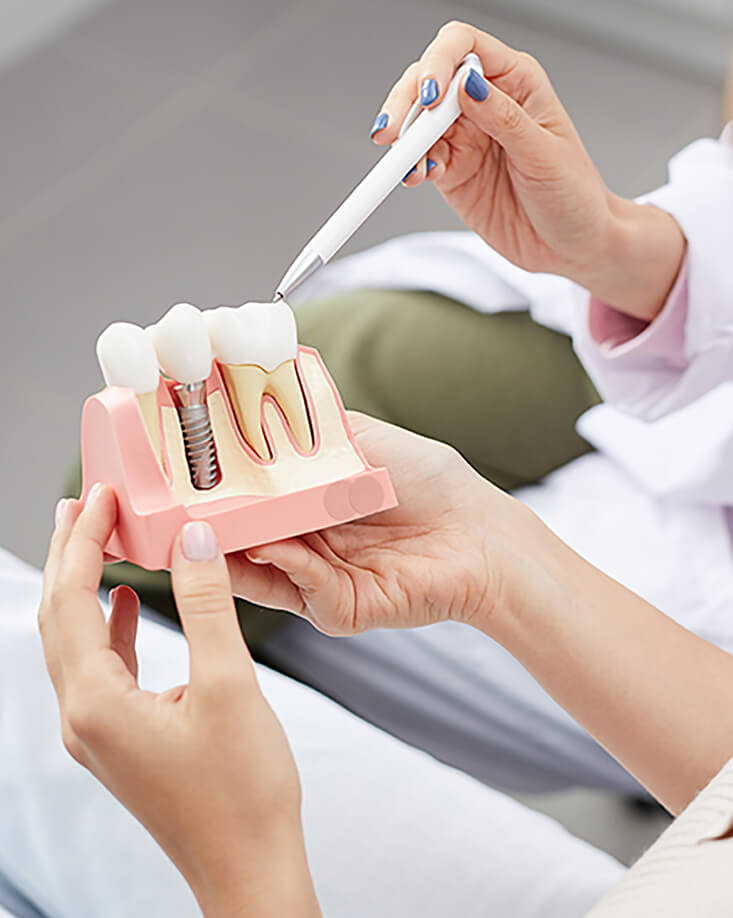Dental Implants
in Rohnert Park, CA
Are missing teeth affecting your confidence or your speech? If so, don’t wait another day to start looking into tooth replacement options. At Blue Apple Dental Group, we proudly offer several tooth replacement options, including dental implants in Rohnert Park, CA!
Dental implants look, feel, and function like natural teeth and are a long-lasting replacement, making them a popular option for restoring smiles and oral health. If you’re interested in learning more about getting dental implants in Rohnert Park, CA, contact our office to schedule your appointment today!
Contact UsWhat are dental implants?
Dental implants are artificial tooth roots made of titanium and are surgically placed into the jawbone. The implants are used to support replacement teeth, like dental crowns or dentures, as a long-term substitute for the missing teeth. If you have missing teeth due to decay or other dental problems, dental implants can help restore the overall health and function of your mouth.
What is the dental implant procedure like?
The dental implant procedure consists of several stages. First, a comprehensive exam is completed to assess whether or not your oral health is suitable for implants. During this exam, specific needs and considerations will be addressed. If you’re a candidate for implants, the dental implant procedure is scheduled. During the procedure, the dental implant is surgically placed into the jawbone and allowed to set through a process called osseointegration, providing stability and functionality similar to natural teeth. After osseointegration, an abutment like a crown, bridge, or denture is attached to the implant, completing the procedure!
How long do dental implants last?
Dental implants are meant to be a long-lasting tooth replacement option. With the proper care and maintenance, they can last for many years, often even a lifetime. However, how long dental implants last depends on various factors, including oral hygiene practices, overall health, and lifestyle habits. Regular dental check-ups, good oral hygiene, and avoiding harmful habits like smoking can significantly extend the lifespan of dental implants, ensuring their functionality and appearance.
Contact Us







